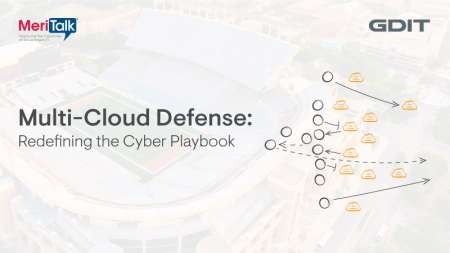
With artificial intelligence applications still being developed, the chief technology officer of the nation’s primary cyber agency said “a new cadre of data professionals” is needed in order to prepare cyber information for analysis.
“I am excited as CTO to start setting a vision for the data and analytics infrastructure here,” said Brian Gattoni, the CTO of the Cybersecurity and Infrastructure Security Agency (CISA) of the Department of Homeland Security (DHS), during FCW’s Summit on FedRAMP.
Gattoni, who primarily discussed the multi-year move to cloud for many agencies, said the vision for data and analytics infrastructure will direct where “precious human resources” are spent.
“What we are going to need is a new cadre of data professionals that serve as sort of a logistics function,” said Gattoni, “getting data prepared and ready and accessible to these analysts to do their job.

“Right now, it’s an additional duty that’s assigned for analysts,” he said, “and that’s where the workload is heaviest.”
Both the Census Bureau and the Office of Management and Budget (OMB) have developed programs to train employees in data analysis and data science techniques. Gattoni sees a similar need for data training in his agency.
“We need to look at investment in training, reskilling, hiring, workforce management to identify those separate roles,” said Gattoni, of data scientists, data engineers, and other data-related jobs.
He added that there needs to be a “logistic function for the work in cybersecurity analysis,” drawing on his experience at the Department of Defense, working in a logistics capacity.
“Get a different cadre of folks working on getting data prepared and ready,” he said. “Take that burden off the analyst and try to train the machines to do some of that rote work that enables analysts to free their time.”
“That’s going to help us enable the power of machine learning and artificial intelligence to help bolster the analysts process,” Gattoni said, adding “If you start with AI on the future end of solving all of your problems, I think you’ll just frustrate yourself and spend a lot of money.”
